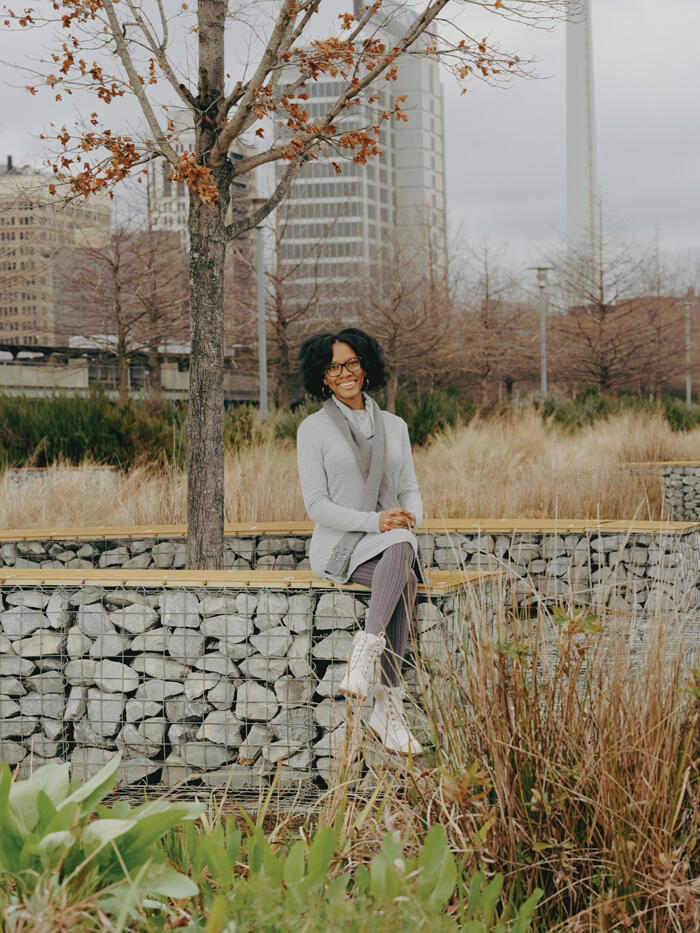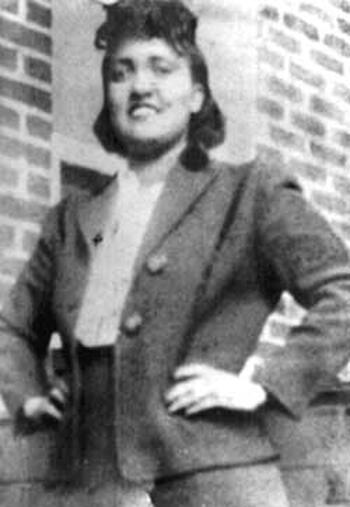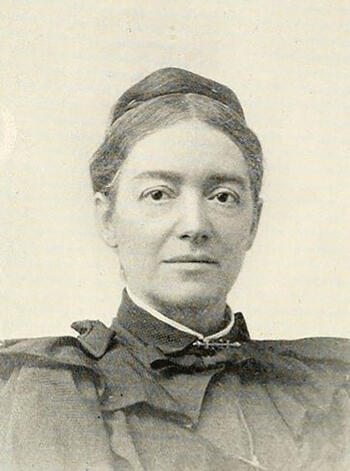“Students, today we are going to take an in-depth look into the history behind the triangular trade route, which happens to involve slavery. We are going to take an unfiltered approach to the concept, and the U.S. wasn’t as heavily involved with slavery as you might think. Actually, more often than not, traders only took captive those that were already slaves in their villages as prisoners of war.”
This is how a teacher explained the institution of slavery in the United States to my classmates and me, and this exact example is often seen as an ample explanation for something so devastating. That classroom experience and others like it sparked an idea in me. Education is the key to a strong society, so when information is hidden and dishonest, that hinders the future of our society and limits the amount of change possible.
An education that consists of glossed-over information like the one that I and so many students have received reduces the importance of substantial events in U.S. history to only a couple of sugar-coated paragraphs in a textbook. This kind of teaching makes statistical excuses for events that took place for over 200 years and that created a system so dehumanizing that the stress it caused in the past is embedded in the DNA of an entire people. This kind of education minimizes the start of a national system of legal oppression. Learning this way means only knowing the names of a few historical figures while the rest collect dust because including them goes against a specific narrative that is so commonly spread throughout our nation.
Our nation: We’re taught that it’s a land for all, a melting pot and a place where liberty is a natural right. So how are we, as students, to execute these ideals if our education doesn’t reflect them? How can we effectively make change and make our society just if we aren’t taught the truth behind what we’re changing? You can’t know where you’re going without knowing where you came from.
A Disservice
I went to a middle school where perspective was limited. We didn’t celebrate cultural appreciation months, and we had only those two sugar-coated paragraphs about the unpleasant areas of U.S. history in our textbooks. That sugar-coated education is damaging in the worst way possible: Students in the U.S. are not educated honestly. As a student, particularly as a student of color, my education has been a disservice that has had a weighty impact on my life. I’m forced to work harder because I have to learn about my culture on my own time. And then, as if I haven’t been through the same educational system as the rest of my class, I’ve been expected to know the most.

I had the reputation in middle school for being the one the teacher would call on for corrections. I was the one who led class discussions on slavery and racism, and I was expected to always be in “tip-top” shape academically as the student who filled the diversity quota. And as the only Black cheerleader at the school, I had to explain how the bows they used wouldn’t fit my hair. I had to explain to teachers—some who held master’s degrees in their fields and some who were practicing physicians—how my hair was able to change from braids one week to an afro the next. Then, when I injured myself during the required physical education course, for months I heard whispers of criticism, as if my genetic makeup excluded my ability to feel pain.
All of this pushed me to take back my power and engage with history myself.
A dishonest education is disorienting and destructive to a student’s understanding of the real world. That’s my early education summed up. The foundation of false facts is laid down in early elementary school. From there, you’re only given the tools necessary to continue to add to the falsities. That’s what happened to me. I was completely clueless about what was lacking, and eventually, the negative truth of all these unpleasant experiences I have had with education hit me. I came to this realization thinking about what I was going through and what I wasn’t learning. I was forced to take off all the layers of inaccurate information that I was initially forced to put on.
After shedding those layers, I could see bits and pieces of things that I then worked to retain in the form of knowledge. But I had no real connection to my culture as a Black person in the U.S., and I wasn’t given the opportunity throughout my education to know that I had no connection. So I had to learn on my own. I had to figure out how to make connections, all while clearing up the confusion I felt after the years of selective or sugar-coated material I was given in school. That’s what my education has been like, and this is the impact that it had on my life.
A teacher’s first duty is to their students.
A Family Journey to Cultural Connection
My mother and I went on a journey to find out about our ancestors. We learned about DNA patterns (which is how I found out that because of the trauma that slavery inflicted on my people, we quite literally pass stress down genetically). We learned that Black women, statistically, are the most educated in the world. We learned that the stigma around mental health in our communities is fostered by standards that the media portrays for people of color (struggling families, impoverished lifestyles, less fortunate situations, “urban” swag, and more).
My father taught me the intricacies of current Black culture through a lens of love and experience. He helped me truly appreciate and celebrate my culture. He introduced me to the history of our music, foods, fashion and joy, all of which was astounding. Both of my parents helped me connect with my roots. How could all of this be disregarded by an educational system? Was this entire community not worthy of recognition? If not, in whose eyes were we deemed insignificant?
I was a military kid, so I’ve been able to experience educational norms in entirely different locations. In elementary school, when I lived in New England, I never learned about slavery—not even from two sugar-coated paragraphs. I never learned about the civil rights movement, never learned about prominent—or any—African American heroes and never learned about Black contributions to society. The only history I learned was Eurocentric in nature—beauty norms, acceptable styles and “true” U.S. heroes.
At an entirely different school, back home in Alabama, I had a teacher who promised to be open and give us knowledge about slavery. What she actually only taught us was that this country had the lowest statistical involvement in the trade of African humans. She taught an entire grade of youth that this country, one that was actually built upon slavery, had the least involvement in it. This is what we were provided with as “education.”
I wasn’t able to learn about the contributions of Dr. Martin Luther King Jr. in my early elementary classrooms in New England, even though he is a man who has a national holiday celebrating him. I didn’t know that there are a multitude of prominent African American contributors to society until I later learned about Garrett Morgan with his invention of the three-signal traffic light; Mary Eliza Mahoney, the first Black professional nurse; Marie Van Brittan Brown and her invention of the first home security system; and that African dance and culture largely inspired jazz dance techniques. Those are examples of major accomplishments by Black people that weren’t taught in school.
My journey to cultural connection has been a long one. It takes the help of my family and constant research on my own to root out all the falsities in education and emerge with a clearer picture of U.S. history and culture. As fate would have it, my mom was taking an African American history course during the summer before my sixth grade year. Once I decided to really pay attention to what she had been trying to tell me, I learned. My father has always been a natural teacher, so once I was able to appreciate his lessons, I learned. We did it. We found a way to truly clear away all the untruths I learned in school.
There are no more excuses to continue allowing a sugar-coated education with inaccurate information to dominate.
Honesty Is the Answer
After cleaning up the confusion from falsities and sugar-coated facts, I learned the importance of transparent education through art, music, speech, writing and so on. It’s our only route to a real education, and it’s the root of all of our expressions. How, then, can teachers effectively communicate such important principles to students? How can you teach someone the law, how can you teach them personal finance, how can you teach them literature, how can you teach them history—and how can you teach all of these things effectively? My advice is quite simple: Honesty is the answer.
A teacher’s first duty is to their students. Hindering students with a false education—or a sugar-coated one—does not align with what is so necessary for a teacher to do. Instead of relying on a student’s ability to correct a given curriculum, teachers can lean into their ability to lead. Educators can teach with clear expectations and give students ample support to actively engage in learning. Hold steadfast to educational promises made in the classroom, and when being vulnerable enough to show your imperfections (because you should, within reason), lend to students, with that same vulnerability, comfort in knowing the truth behind their curriculum and instruction.
I wish that future youth are given the opportunity to have an honest education. I also hope that all cultures are included in education. Every group deserves to be regarded because, at the very least, that inclusion prepares students for what’s to come. Throughout life, we are going to be exposed to people who have different experiences than ours. How are we to be an inclusive society if our education is not inclusive? How are we to exercise liberty and equality if we don’t know anything about the other communities that are deserving of those principles?

Education in the U.S. should be all-encompassing. We have to know more about where and what we came from and who we are in order to grow as a nation and to be the embodiment of those founding principles. The methods with which we educate should reflect the truth of each principle we have laid out as the map to a successful nation (life, liberty, equality and the pursuit of happiness, to name a few). This means all of the importance associated with our natural rights as citizens should also be reflected in how and what we learn. We need lessons that do more than focus on Eurocentric ideas and spaces.
Let’s learn how the Wampanoag (who inhabited what is currently Massachusetts) influenced the practice of cultivation that we use presently and how that practice continues to support our nation. Let’s take an in-depth look into medical studies involving women like Henrietta Lacks and learn about women like Dr. Mary Putnam Jacobi, while acknowledging both of their contributions to medicine. And we need more classes about financial development and diversity. Simply stated, we need to rise above teaching the minimum on all subjects.

It wasn’t until recently that a more student-centered approach to education has been highlighted. Education should always be tailored to meet students’ needs. If the educator has enough information on the subject to teach it, they should be able to tailor it to focus on those learning it. There are so many methods, resources and ways to research today. There are no more excuses to continue allowing a sugar-coated education with inaccurate information to dominate. We can change things for the better.
Education is key to a successful society. Hiding information and being dishonest with learning leaves the society disadvantaged. Educators should teach with honesty. My education started with a foundation that could not support the reality of my life and experiences. I had to sift through falsities and find my way forward. But I was empowered to get a clear picture, and that knowledge has forever impacted me in the best of ways.
If we are to truly be an inclusive society, we must value one another and our stories. We must learn from each other. We are capable of change and success. If we begin our education without sugar-coated paragraphs and with a focus on honesty, the impact on our society—and on the world—will be extraordinary.
